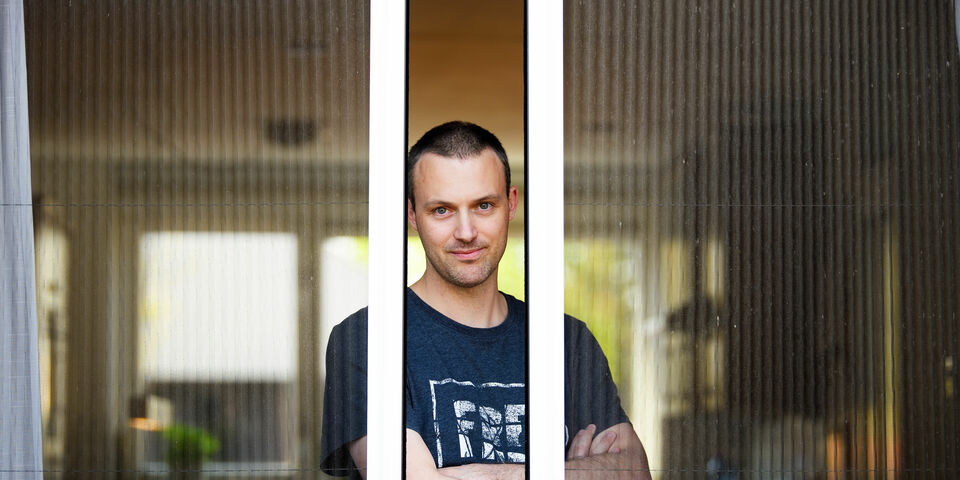Smile, you’re on GeenStijl
Even though I too, like so many of us, saw that joke via WhatsApp at the start of the year that the English pronunciation of ‘2022’ is ‘2020 too,’ I sincerely hope that 2022 won’t replicate that disastrous year. For me at least, the year started out well, because with some help from a German vaccine doctor, a French hotel and an English ski rental service, we enjoyed a nice vacation.
2022 also started out well for our students, because they were finally allowed to return to campus. Working together has become possible again, and that will come as a relief to many, especially to students who haven’t seen their peers in the flesh for two years now.
The fact that we get to see each other in person again instead of via a camera, automatically leads to the return of nuances during conversations. We express those nuances nonverbally as well as in the language we speak. I try to communicate in Dutch with colleagues and students whenever I can, but when this becomes impossible for obvious reasons, we all effortlessly switch to English. It happens almost automatically.
That’s why I was shocked to learn of the letter going around at the department of Built Environment. In the letter, which was published on website GeenStijl on January 18, it says – in English – that every Dutch person on campus who speaks Dutch is insidiously and destructively responsible for excluding people. That’s quite a statement, and I would like to know how people at a French or German university would have responded to such a remark.
There is much to criticize in the letter. Apart from a number of linguistic and stylistic errors, every sentence contains the highest possible number of difficult words. A few online analyses of its complexities have shown that the letter is aimed at readers with C1 level proficiency, the English language level our lecturers are expected to be proficient at, but not our students or support staff. The language proficiency level we expect from our students is IELTS 6.5 or TOEFL 90, both of which are similar to B2. In short: a well-intended letter perhaps, but hardly inclusive.
What I find even more amusing however, is that the content of the letter doesn’t correspond with TU/e’s official language policy, according to which our university’s colloquial language on campus is ‘English if necessary, Dutch if possible.’ That, incidentally, isn’t very inclusive either, because if two Spanish colleagues wish to converse in their own language, they should go ahead and do so.
I hope to see many of my colleagues and students on our campus again in 2022, and I also hope to talk to them, no matter in what language. And in case I address you in the wrong language, please don’t hesitate to let me know, I’m happy to switch to English. I will listen in on a conversation in German, but my command of most other languages is limited to just a few words.


Discussion